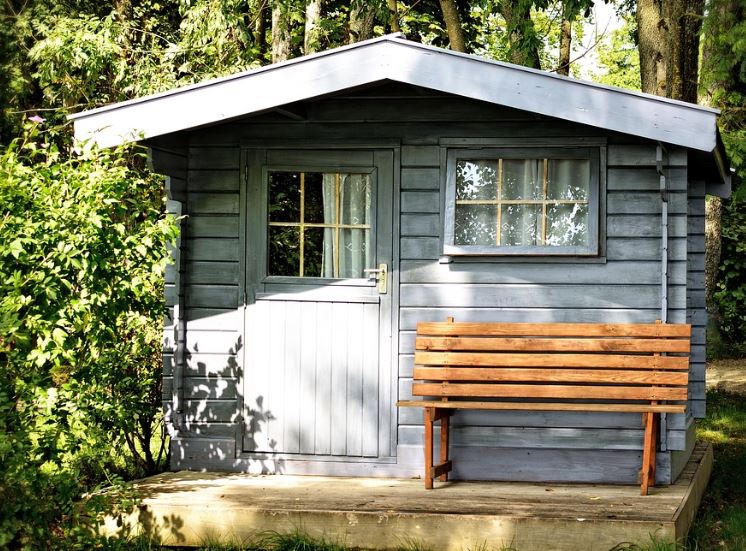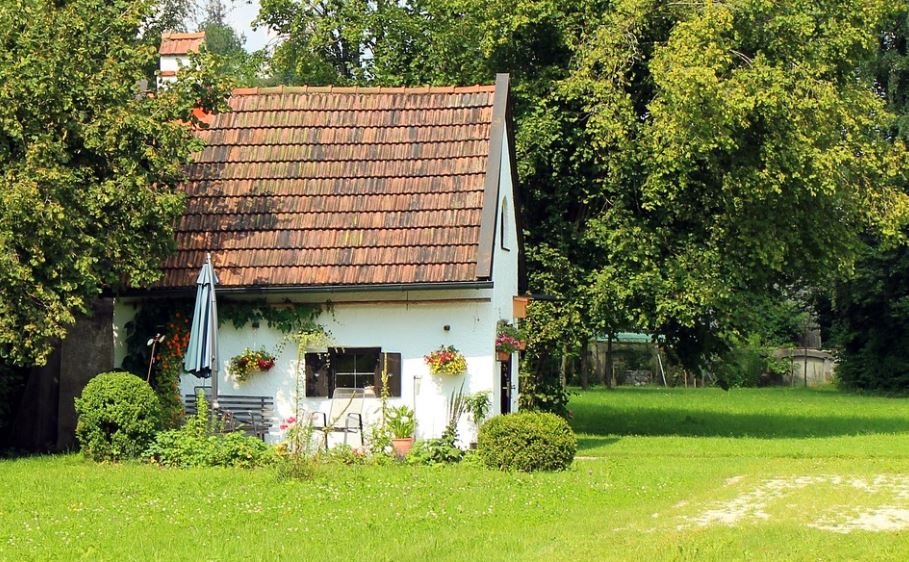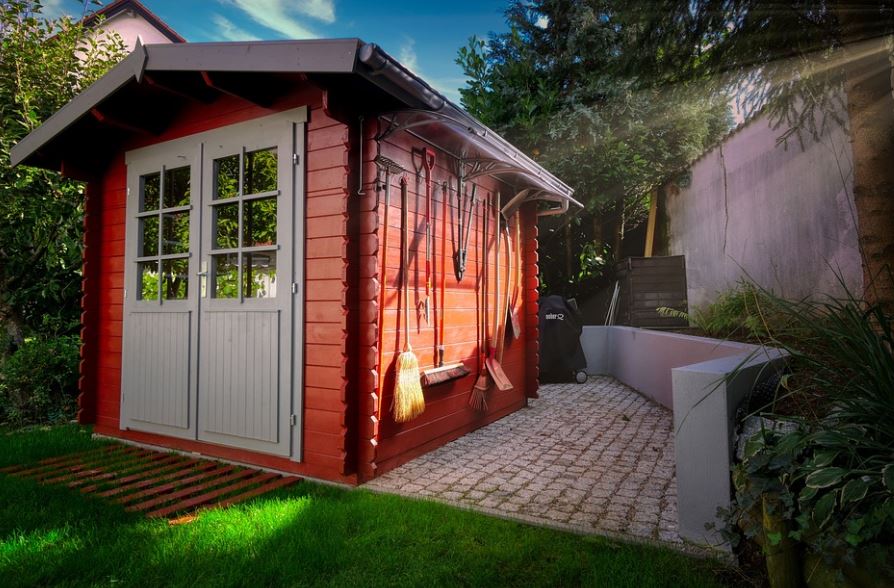If you're reading this, you might be considering adding a shed to your property. After all, who doesn't love having a little extra space for tools, gardening supplies, or even a man cave.
But before you break ground, you might be wondering: does a shed add value to a home?
It's a great question, and one that I'll be answering in this post.
I'll break down if a shed adds value, and how to build one to get the maximum resale value.
Does A Shed Add Value To A Home?
A shed with a foundation and permits can add value to a home.
If it doesn't have a foundation, appraisers will consider it as personal property. And if it doesn't have permits, it's going to be a liability too.
Also Read: does new furnace increase home value
For example, a basic storage shed, like a prefabricated metal or plastic one, won't increase your home's value.

Now a well-built, high-quality shed, especially one that complements your home's style, can add more value to the home. This could be especially true if:
- The shed is spacious and offers significant storage.
- It has a foundation and is built to last.
- It has features like electricity or running water, making it a usable space.
- It's in good condition and well-maintained.
- If the floors are concrete instead of dirt or gravel
Apart from that, the size matters too.
A 8x10 shed will not add any real value even if it has a foundation. But a 20x40 one would definitely increase your home value - the same way a garage would.
Let me go over all of these in more detail next.
How To Build A Shed That Increases Home Value
Here are 7 things you can do when you build the shed, so that it adds value:
#1 Get Proper Permits And Approvals
One of the most important things that can make your shed more valuable is getting all the necessary permits from your local town or city authorities.
Building without a permit can result in fines, or even orders to tear down the shed.
Without the paperwork, your shed will be a liability that could really turn off potential buyers.
So always check what the local rules and regulations are in your area, and make sure to get the required permits before you start any construction on the shed.
Also Read: Selling a house with unpermitted work
#2 Set Your Shed On A Foundation
If you really want your shed to be considered a permanent part of your home that can add extra value, you MUST build it on a proper foundation.
Without a foundation, your shed will be considered as a temporary or movable structure.
And that could seriously limit how much tangible value it actually adds to your home's worth.
#3 Use Good Materials
The materials you choose for building your shed will also affect its value.
Use high-quality, durable materials that are built to withstand the weather conditions in your local area. This will extend the shed's lifespan and make it more appealing.
It's also a really good idea to take a look at what types of shed materials and styles tend to be most popular and in-demand among potential buyers in your particular area or region.
For example, in some places PVC sheds may be preferred because they do a better job resisting harsh weather.
In others, the classic look of a traditional wood shed is more desirable.
Also Read: does a fence add value to a home
#4 Build A Bigger Shed
A small shed like 8x10 will not add any value even if it has the permits and a foundation.
It's kind of like a garage. The bigger it is, the more value it will add.
The most obvious benefit of a bigger shed is extra storage space.
This is attractive to buyers who crave more room for lawnmowers, tools, bikes, seasonal items, or anything else that clutters a garage or house.
Plus, it can be transformed into a workshop, home office, hobby space, or even a she-shed/man-cave.
And it could even be rented out for storage!
#4 Match The Shed's Style To The Home
Another thing that can help increase the value is how nice it looks and how well it fits in with the rest of your property.
Making an effort to have the shed's overall style, building materials, and color scheme closely match your house can really help create a cohesive, good-looking outdoor space.
This nice, harmonious look can go a long way in making your entire home seem more visually appealing and desirable to buyers.
Also Read: Do Skylights Add Value to a Home
And that added curb appeal will increase what buyers think your property is truly worth.
#5 Maintaining The Shed
Just like any other structure on your property, how well you maintain your shed affects how valuable it seems to buyers.

A well-maintained shed that's in great condition can be an asset that increases value.
A run-down or poorly maintained shed may actually make your home seem less valuable.
So basic regular upkeep, like cleaning, repairing any damages, and making sure it works properly, can help the shed maintain its value and appeal.
#6 Staging For Showings
If and when you do eventually go to sell your home, take some time to properly stage and set up your shed.
This can seriously help showcase its full potential and visual appeal to prospective buyers.
Simple things like keeping the shed nicely organized, clean, and free of any clutter can allow buyers to really be able to easily picture them using it.
Plus, going the extra mile with touches like adding some good lighting, temperature control, and even pleasing scents can all contribute to an inviting atmosphere that highlights the shed's most appealing features and potential uses.
Doing some proper staging can legitimately increase buyers' perceived value of your shed.
Bottom Line
A shed will add value to a home if it has all the permits and is built on a foundation. And the size matters too. The bigger the shed is, the more value it will add.
FAQs
Does A Shed Increase Property Tax?
This depends on your state, but permanent structures are considered taxable real estate.
If your shed has a permanent concrete slab or foundation, it will increase tax. If it doesn't have a foundation, the shed wouldn't increase your taxes

